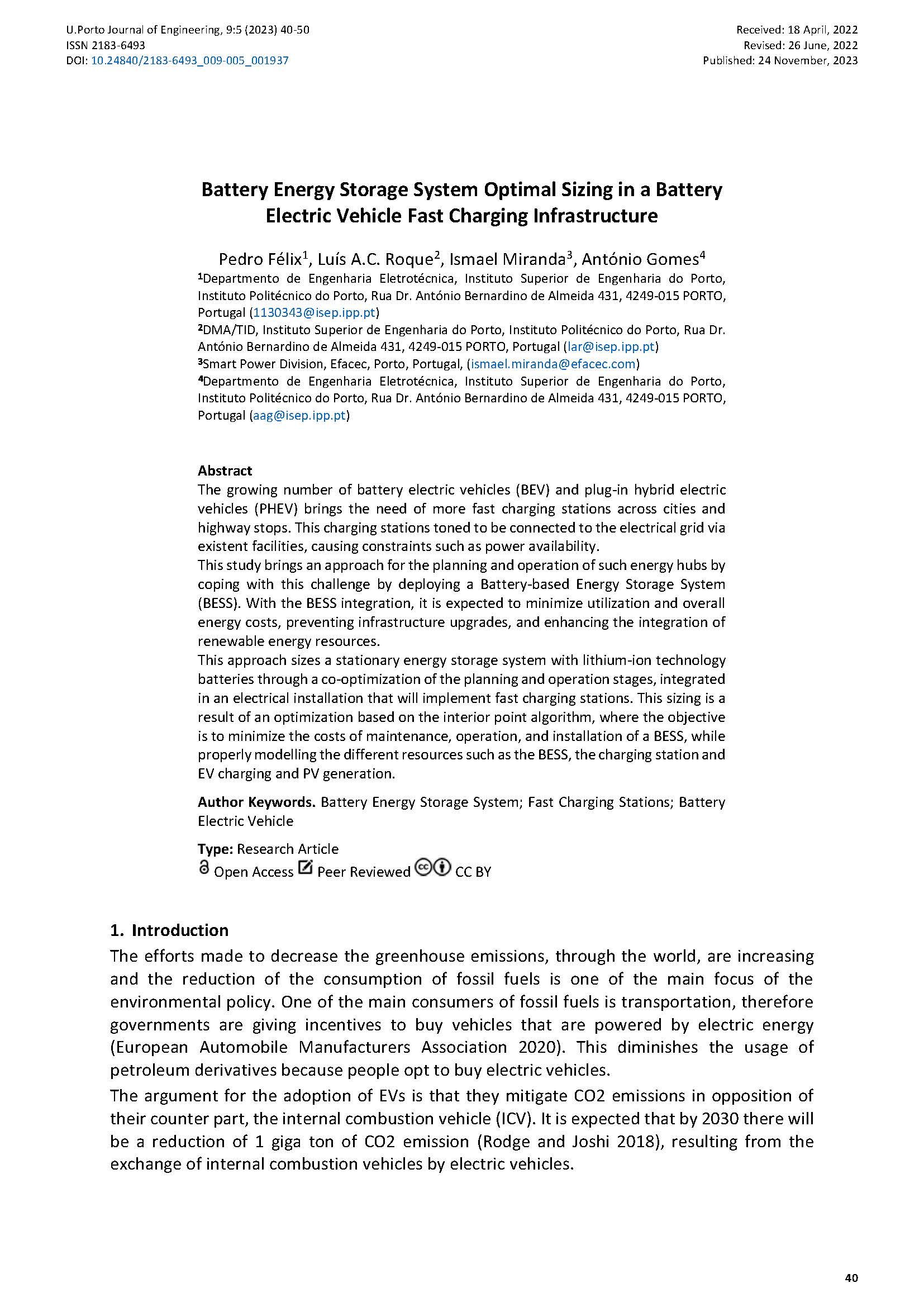Battery Energy Storage System Optimal Sizing in a Battery Electric Vehicle Fast Charging Infrastructure
Main Article Content
Abstract
The growing number of battery electric vehicles (BEV) and plug-in hybrid electric vehicles (PHEV) brings the need of more fast charging stations across cities and highway stops. This charging stations toned to be connected to the electrical grid via existent facilities, causing constraints such as power availability.
This study brings an approach for the planning and operation of such energy hubs by coping with this challenge by deploying a Battery-based Energy Storage System (BESS). With the BESS integration, it is expected to minimize utilization and overall energy costs, preventing infrastructure upgrades, and enhancing the integration of renewable energy resources.
This approach sizes a stationary energy storage system with lithium-ion technology batteries through a co-optimization of the planning and operation stages, integrated in an electrical installation that will implement fast charging stations. This sizing is a result of an optimization based on the interior point algorithm, where the objective is to minimize the costs of maintenance, operation, and installation of a BESS, while properly modelling the different resources such as the BESS, the charging station and EV charging and PV generation.
Downloads
Article Details

This work is licensed under a Creative Commons Attribution 4.0 International License.
Authors who publish with this journal agree to the following terms:
- Authors retain copyright and grant the journal right of first publication with the work simultaneously licensed under a Creative Commons Attribution License that allows others to share the work with an acknowledgement of the work's authorship and initial publication in this journal.
- Authors grant the journal the rights to provide the article in all forms and media so the article can be used on the latest technology even after publication and ensure its long-term preservation.
- Authors are able to enter into separate, additional contractual arrangements for the non-exclusive distribution of the journal's published version of the work (e.g., post it to an institutional repository or publish it in a book), with an acknowledgement of its initial publication in this journal.
- Authors are permitted and encouraged to post their work online (e.g., in institutional repositories or on their website) prior to and during the submission process, as it can lead to productive exchanges, as well as earlier and greater citation of published work (See The Effect of Open Access).

